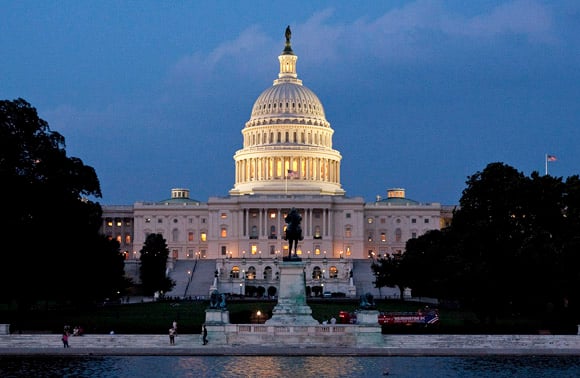Politics trumps logic, basic math in Capitol Hill cat fight
Municipal bond investors might be breathing a sigh of relief knowing that the fiscal cliff deal spared their tax-free income, but the fight rages on because that muni exemption is likely to be on the chopping block as part of the upcoming debt ceiling debate.
Logic would suggest that the roughly $45 billion worth of foregone federal taxes from the $4 trillion muni bond market would be small potatoes in the overall budget debate. But the debate is actually more political than fiscal and, politically speaking, the muni bond tax exemption is generally perceived as another perk for greedy rich folks, despite the fact that 51% of muni tax exemptions are claimed by households with annual incomes below $250,000.
Thus, the 100-year-old muni bond market that has become instrumental in funding and financing state and local infrastructure projects becomes a populous political football in the endless congressional cat fight.
“We view it as a clear and present threat because the discussion in Washington right now is not about good policy and bad policy, and Washington doesn't really understand and appreciate the muni bond market,” said Mike Nicholas, chief executive of Bond Dealers of America.
One question now is whether the new congress will embrace a new perspective on the issue.
“The muni bond exemption really is small compared to trillions needed to put this economy back on track, but the concern and the wonderment is what this new congress is going to do,” said James Colby, senior municipal strategist at Van Eck Global.
“The discussion on the muni tax exemption has not been set aside,” he added.
Jennifer Vail, head of fixed income research at U.S. Bank Wealth Management, said it is likely that the muni exemption will be back on the table in some form, which could mean a reduced exemption for high-earners.
President Barack Obama, as part of his failed JOBS Act two years ago, proposed capping the muni exemption to 28%. That would give taxpayers in the highest bracket an exemption equal to about 9%.
“The muni exemption is still a wild card,” said Ms. Vail. “They're going to need to find additional funds somewhere, and that may cause some short-term volatility in the muni market.”







